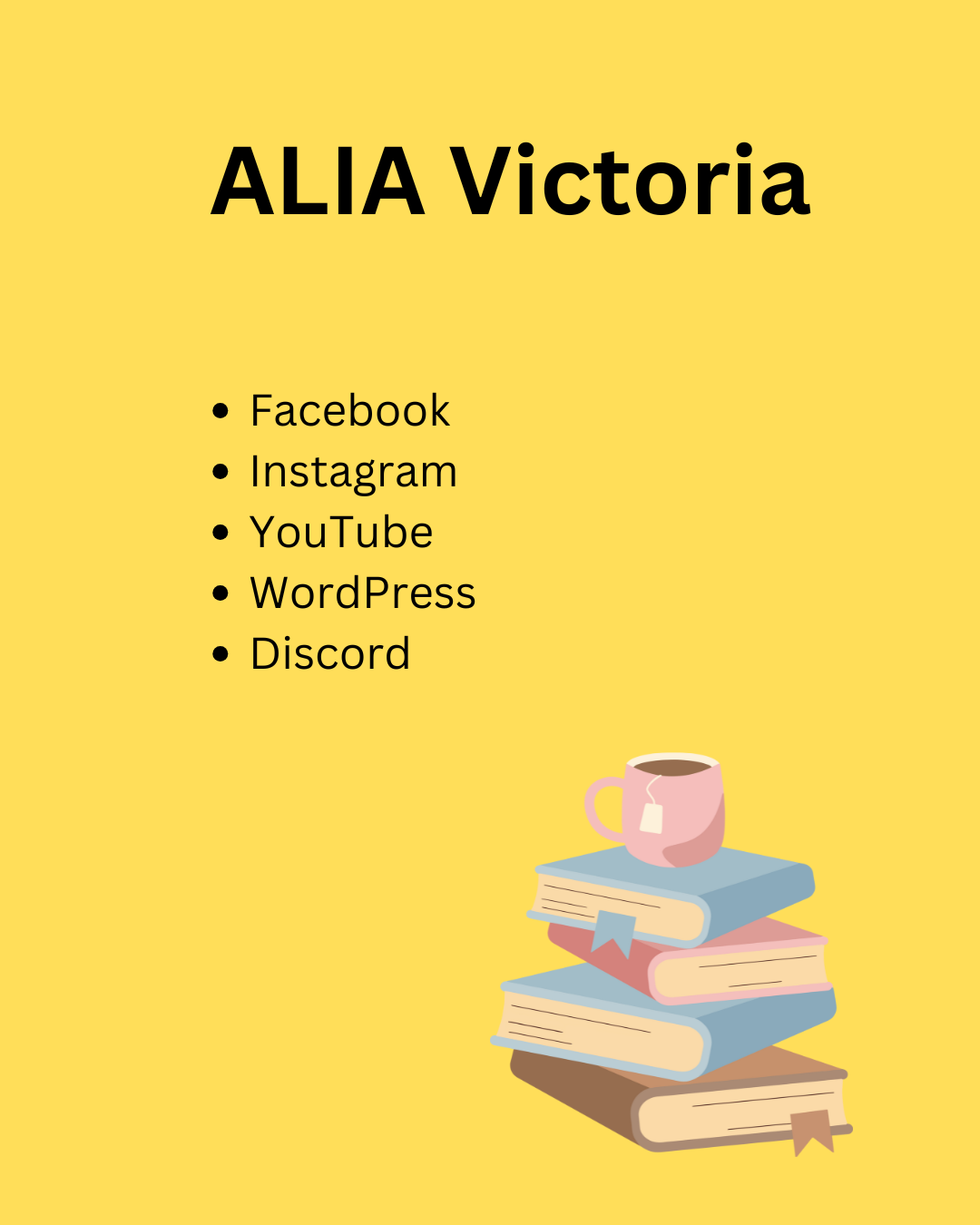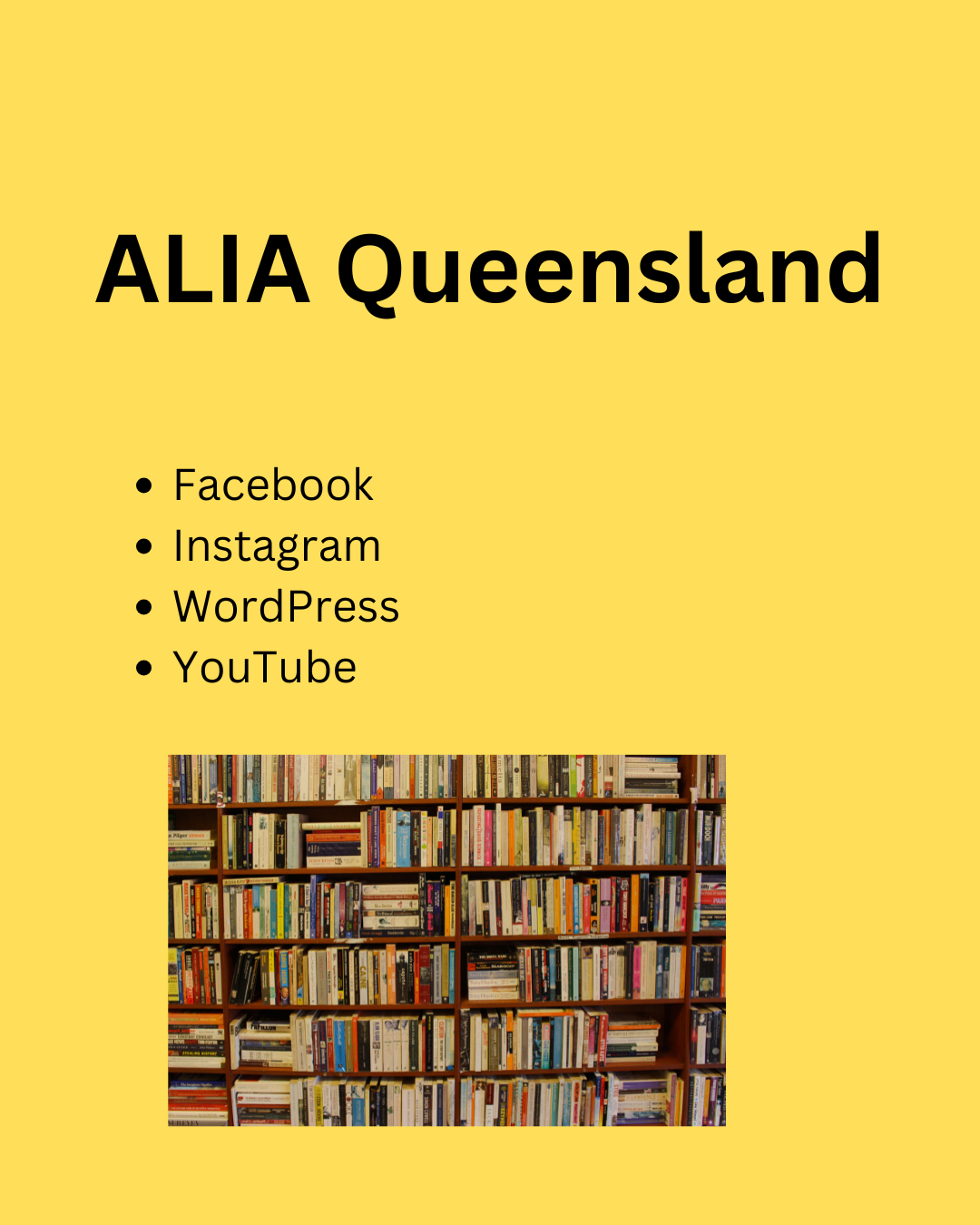Links
ALIA Students & New Graduates

ALIA SNGG Resume Review Service (ALIA SNGG RRS)
The ALIA Students and New Graduates Group have a FREE ALIA SNGG Resume Review Service for #ALIAMembers. Personal (Student, Associate and General Member) and Professional (LibTech and Allied Field) members are eligible to have three ALIA SNGG resume reviews a year.
*You must be an ALIA Member to use the ALIA SNGG Resume Review Service (ALIA SNGG RRS).
How to request a review:
Send an email to alia.sngg.rrs@gmail.com with the subject line ‘Resume review request’ and include the following information in the email:
- Your resume attached as a Word document (.doc, .docx, or .rtf)
- Your name and email address
- Your ALIA number
- A list of any areas of the resume you would like resume feedback for
- If applying for a specific job, please include an active PDF link or file attachment for the job you are applying
What to expect:
- Your selected reviewer will contact you within two weeks with feedback on improving your resume based on their experience and expertise.
- The resume review is confidential.
- The Resume Review Service Coordinator and the selected reviewer will delete your files once the review is complete.
- We will add your name and email address to a Google Spreadsheet accessible only to the service coordinators. Please let us know if you do not want your details kept on the Google Spreadsheet after the review.
Please email your resume review service questions to the ALIA SNGG Resume Review Service Team.
ALIA SNGG Resume Review Service Job Help Site Resources
ALIA Students and New Graduates Group ALIA Resume Review Service Job Help Site Resources page is the place to discover professional development links to help you revise your Resume, Cover Letter, learn interview tips and help you understand selection criteria.
On the site:
Find information from TAFE Queensland: How to craft the perfect CV for internships and graduate jobs. Provides advice on how to tailor your resume/CV to the job. Explanation on resume/CV headings. TAFE Queensland are on the ALIA Accredited Course list under Library Technicians.

ALIA SNGG Book Club (Facebook Group)
Searching for a library book club group on Facebook? Join our #ALIASNGGBookClub (Facebook) Group to network and share your passion for reading, books and librarianship.
ALIA SNGG Book Club (Facebook Group)
Book Club was created in 2020.
Past featured discussion books include:
- Emma by Jane Austen. Book first published in (1815)
- The Time Machine by H. G. Wells. Book first published in (1895)
- My Brillian Career by Miles Franklin. Book first published in (1901)
- Persuasion by Jane Austen. Book first published in (1817)
- The Eyre Affair by Jasper Fforde. Book first published in (2001)
- Jamaica Inn by Daphne du Maurier. Book first published in (1936)
- Inkheart by Cornelia Funke. Book first published in (2003)
- Sense and Sensibility by Jane Austen. Book first published (1811)
- The Hobbit by J.R.R. Tolkein. Book first published in (1937)
- Six of Crows by Leigh Bardugo. Book first published in (2015)
- Before the coffee gets cold: Tales from the Cafe by Toshikazu Kawaguchi (2015)
- What you are looking for is in the library by Michiko Aoyama (2020)
- Treasure Island by Robert Louis Stevenson. Book first published (1883)
- The Secret Life of Booksellers & Libraries by James Patterson & Matt Evesmann. Book first published (2024)
ALIA SNGG Resume Review Service: Job Help Site Resources
Visit our ALIA SNGG Resume Review Service: Job Help Site Resources page for ALIA Resume Review Service eligibility details, resume and cover letter advice.
ALIA HLA Tips for applying for Health Library Jobs and answering Key Selection Criteria
In March 2024 the ALIA SNGG Team spoke to the Health Libraries Australia’s Glynis Jones, AALIA, SFHEA | Team Leader, Librarian, SMHS & EMHS Library and Information Service, South Metropolitan Health Service and Michele Gaca, University Melbourne.
Glynis and Michele’s tips for Students and graduates who are interested in applying for a job in a health library.
General tips:
- You will not be expected to have worked in a health library before, but will need to express your interest in the sector and how your skills and attributes can be applied.
- Make sure you understand the requirements for the job application and contact the employer for clarification if needed.
- Check that your final application includes all the specified documentation (e.g., cover letter, resume, statement addressing the key selection criteria, etc.)
- Follow any word or page limits –that are given in the job application. Remember that employers may read a large numbers of applications.
- Approach every application as a new process. It is often obvious when content is cut and pasted across documents. This practice will usually detract the reader. Make sure you understand the requirements for the job application and contact the employer for clarification if needed.
Check that your final application includes all the specified documentation (e.g., cover letter from clearly from identifying your suitability for the specific position for which you are applying. Cutting corners does not lead to quality applications. - Most jobs will have a requirement for good communication skills and the written application is one way to demonstrate these. Be clear and concise with your language, and format your
documents to enhance readability.
Resume
Useful information to include (in addition to your standard resume):
- Demonstration of interest in healthcare
- Demonstrated understanding of the healthcare sector
- Any relevant work experience, including paid, voluntary, and practicum placements. This could include positions in the health sector, library sector, or any other related roles e.g. customer service, administration, or research.
- Studies in healthcare e.g., a health qualification, relevant subjects studied at school
- Knowledge of health research methodologies e.g., systematic reviews, clinical trials
- Any engagement with ALIA HLA sector group or other health library groups
- Knowledge of health sciences information resources/platforms
Glynis and Michele’s Key Selection Criteria tips for Health Libraries.
Include:
- Relevant qualifications/studies/training
- Understanding of the healthcare sector and its role
- Work experience – paid, volunteer, practicum placements
- Interpersonal Skills and abilities – team player, active learner, problem solver
- How your skills will be relevant to the position you are applying for
- Draw widely on your generic skills, experiences, and knowledge; and demonstrate their relevance to
health library context.
Examples:
Demonstrated ability to consistently provide and model professional and client-focused customer
service.
Hints:
- Draw on any experience you have in providing quality client-focused customer service. This could be through any work in the customer service industry (café or shop work, etc.). The experience
does not have to be in a health library or even within the healthcare sector to be relevant. - Describe the experience, making sure you can demonstrate that you delivered quality services, and then relate your skills and experience to the role you are applying for.
Example text:
During my experience working at a cafe I became adept at working under pressure to deliver timely services to clients, managing their expectations, and resolving their concerns in a calm and supportive manner.
I gained a strong appreciation of the importance of working as a team to provide a consistent level of service and a positive experience to customers, even during peak times. This experience has provided me with a positive customer-focused mindset and a strong set of skills that can be applied in the health library context to work as part of a team to provide quality services to library clients promptly.
Demonstrated ability to work independently and as a member of a professional team showing initiative, being innovative and adaptable, setting priorities and balancing the demands of a complex working environment.
Example text:
When volunteering at the neighbourhood childcare centre, it was important that I presented to work on time. This role required me to be flexible and agile given the care needs, temperaments and moods of each child varied on any given day. This was a complex working environment, where I had to act independently whilst also participating as part of the care
centre team. Whilst children had set play times and activities this often changed depending on the number of children present on the day or equipment available. I had to think on my feet and adapt to an ever-changing environment. I had to tailor different activities to
individual childrens needs, often requiring me to prioritise and then re-prioritise. I believe this would equip me to work in a busy health library environment where health staff have a wide range of information needs that often require a quick response to support a patient.
Interview
Preparing for your interview tips:
- Think about how your skills will be relevant to the job you are being interviewed for and explain.
- Develop 3 or 4 relevant examples for each selection criteria.
- Spend time researching the organisation, including its values and activities.
During the interview:
- Provide additional examples and expand on the examples provided in the selection criteria.
- Demonstrate you have prepared for the interview. If appropriate include
information that you have read about the library and/or the organisation that you are interested in working in. - Ask questions of your interviewers. Something you may not be clear about or curious about.
- Remember you are being interviewed because the interviewers genuinely want to learn about you.
Digitisation and Preservation
Rogers, J. Digital Preservation Handbook, ALIA Digitisation & Preservation (2023)
ANDPA – Association of Neurodivergent and Disabled GLAMR Professionals Australia.
ANDPA is a not-profit, values-led and aspires to promote the acceptance of disability and neurodiversity in GLAMR fields through community, pride, belonging, and leadership.
Group founded in November 2023 by GLAMR (Gallery, Library, Archive, Museums, and Records) librarians Emilia Bell (ALIA NGAC) and Nikki Andersen (former ALIASNGG Social Media Coordinator, Twitter).
Emilia and Nikki are passionate about seeing disability acceptance and belonging in Australian Gallery, Library, Archive, Museum, and Records (GLAMR) professions.
IFLA Continuing Professional Development Workplace Learning Section (IFLA CPDWL)
Vision Australia – Digital Access Blog
Tips to follow on Vision Australia’s Digital Access Blog to make social media and blog pages accessible to audiences with low or limited vision.
- How to understand Colour Contrast for images and text.
- What is Alt-Text (Alternative Text) and how to use this on images on webpages, blogs & social media (Facebook, Instagram, X/Twitter, LinkedIn)
- How to use closed and open captions.
- How to make PDF (Portable Document Format) documents accessible
- How to make socoal meda accessible? Adding captions to Facebook, Instagram, X/Twitter & LinkedIn posts.
Council of Australian University Libraries (CAUL) – Digital Dexterity Framework
- Explore what Best Practices
- What skill gaps you may have
Misskoko the Librarian
Find tips to improve your
- LinkinIn library pressence
- Edit your Resume
- Edit your Cover Letter
- Understand Selection Criteria
- Upskill your Instagram, Twitter social media skills
- Learn about hashtags
Hubspot: How to Repost on Instagram
Understand how to Repost on Instagram.
- Learn the best practices for Reposting content (posts/reels)
- How to Repost to Instagram with an app
- How to credit (posts/reels) created by the original Instagram account owner (Instagram Web version or ap version)
Library Podcasts
Take a listen to these library podcasts:
- School Librarians United with Amy Hermon to hear about issues affecting school libraries and visual book lists.
- ALIA Graphic Podcast (See list of Podcast below)
- Call Number with American libraries
- Good Reading Podcast
- Cake the podcast by State Library of Queensland
- GLAMR Disability in Dialogue by ANDPA
- The School Librarians Learning network podcast
- Your Summer Stories : Newcastle Libraries
- Library Leadership Podcast
- Lost In The Stacks: The Research Rock’n ‘Roll Radio Show
- The Librarian Is In: New York Public Library
- The Librarian’s Guide To Teaching
- Cyber Punk Librarian Podcast
- The London Library Podcast
- Bibliotheraphy by State Library Victoria
- The Chapters by State Library Victoria
- The Shelf-Care Podcast
ALIA Special Interest Group Podcasts
ALIA Graphic Novels and Books Podcasts
- 105 Comics and Libraries: The Pros and Comic Cons, December 12, 2024
- 66 Nurturing and inspiring reading and creativity using graphic novels and manga, December 5, 2022
- 62 Paul Metcalfe and graphic novels at TAFE Libraries, October 17, 2022
- 28 April Roundup and Special Collections Librarian Daniel Wee, April 29, 2021
- 12 Australian Comics at Libraries with Queenie Chan and Karen Dwarte
ALIA Guidelines for Industry Placements: Diploma of Library and Information Service
What are industry placements?
An industry placement is a placement in Library and Information Science (LIS) compleeted by students in an ALIA accredited course. See ALIA Accredited Course list for Librarians & Information Specialists (AALIA), Teacher Librarians (AALIA) and Library Technicians (ALIATech).
Placements provide an opportunity to gain professional experience, learn skills and practice knowledge from studies in a supervised library environment.
More information on ALIA guidelines for industry placements here.
GLAM Peak

What is GLAM Peak?
The place were representatives from Australian Gallery, Library, Archives and Museums (GLAM) connect with historical societies & cultural institutions.
Explore their Toolkit > Share page for advice on:
- Providing Digital Access to Collections
- Open Data & Trove
- Social Media (Links you to how to use X/Twitter, Facebook & Instagram guides)
The Australian Media Literacy Alliance
Who are The Australian Media Literacy Alliance?
A group that includes The Australian Library and Information Association who work to advocate media literacy.
ALIA SNGG Special Interest Group + Sector Group Social Media Guide: Part 1

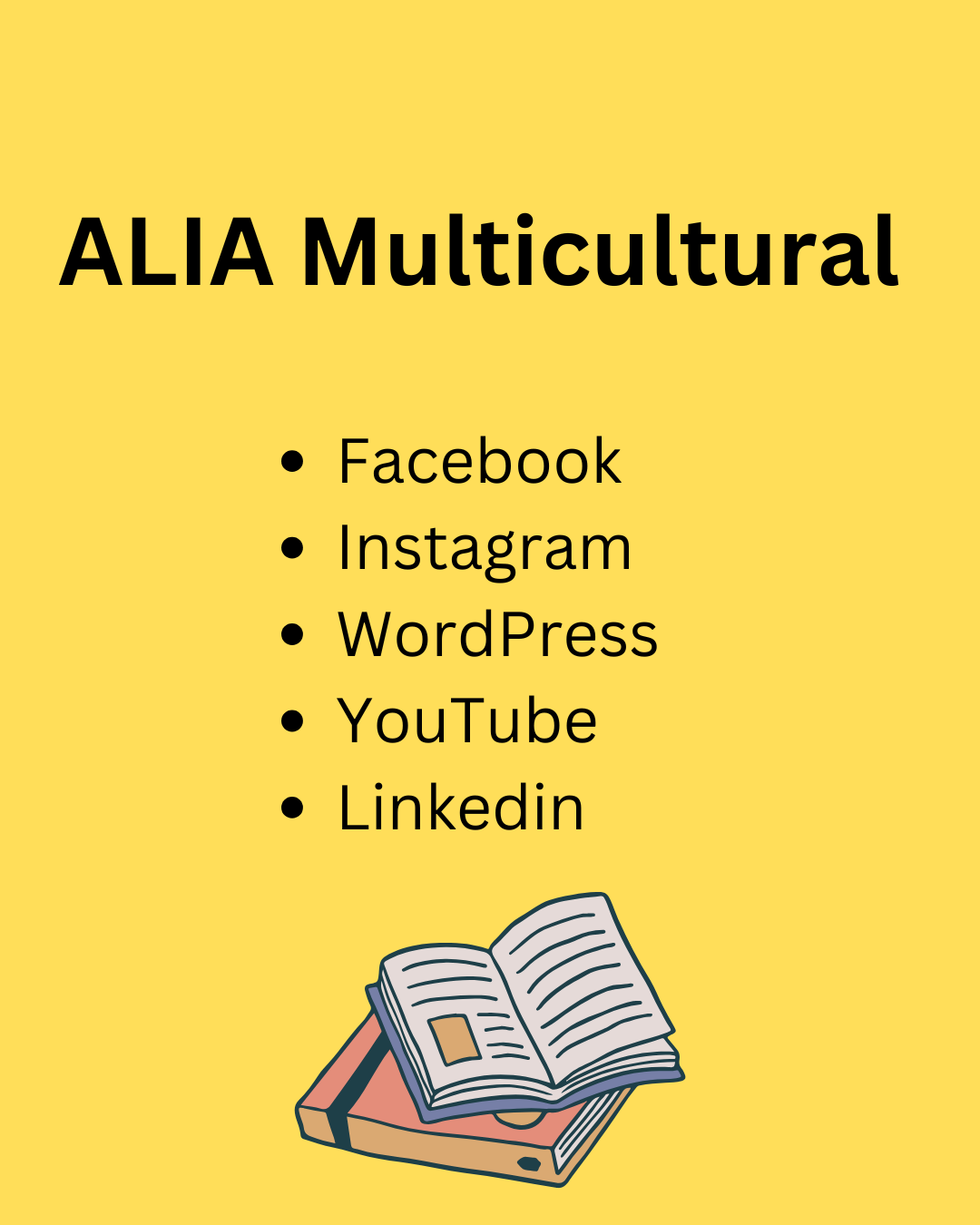
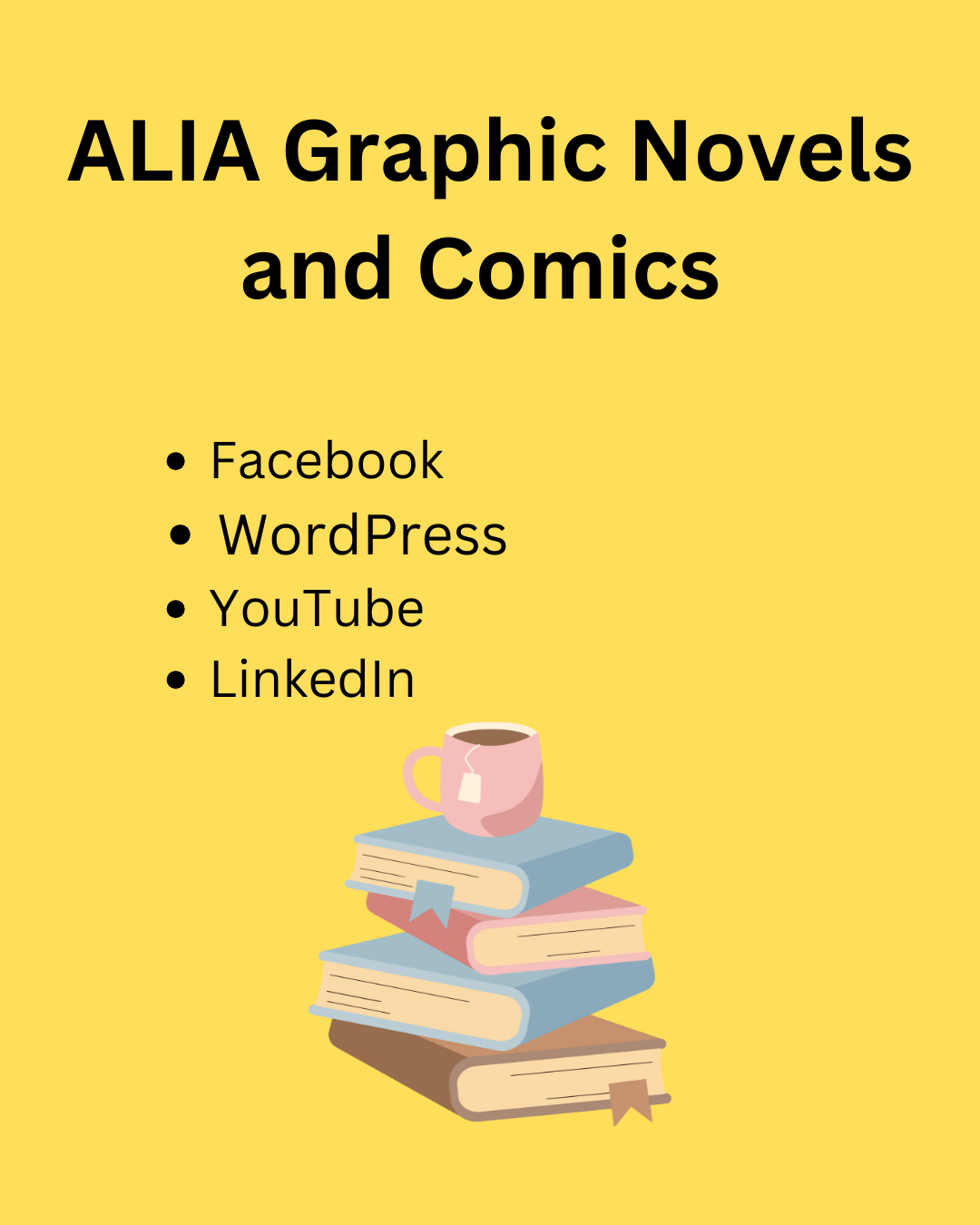
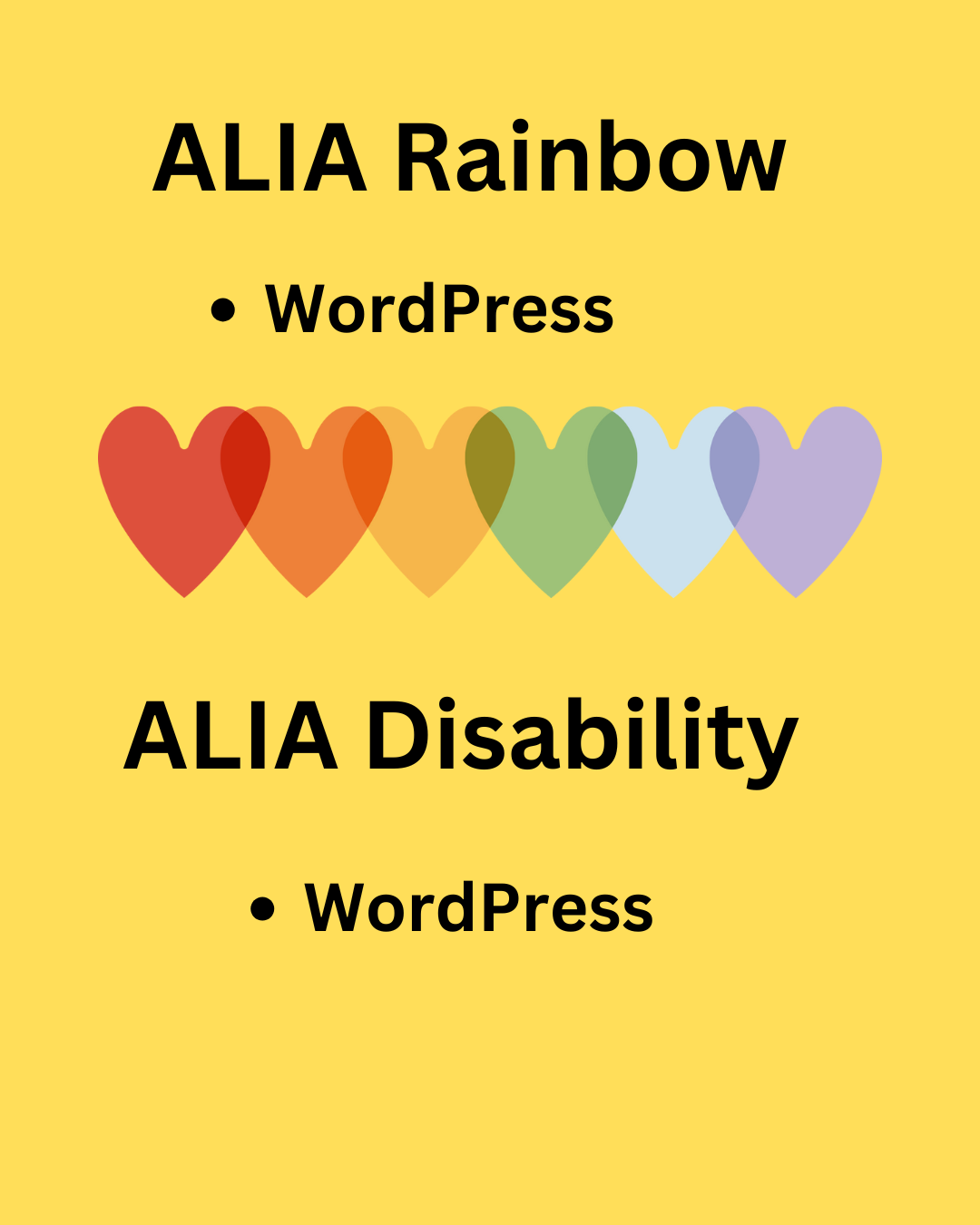
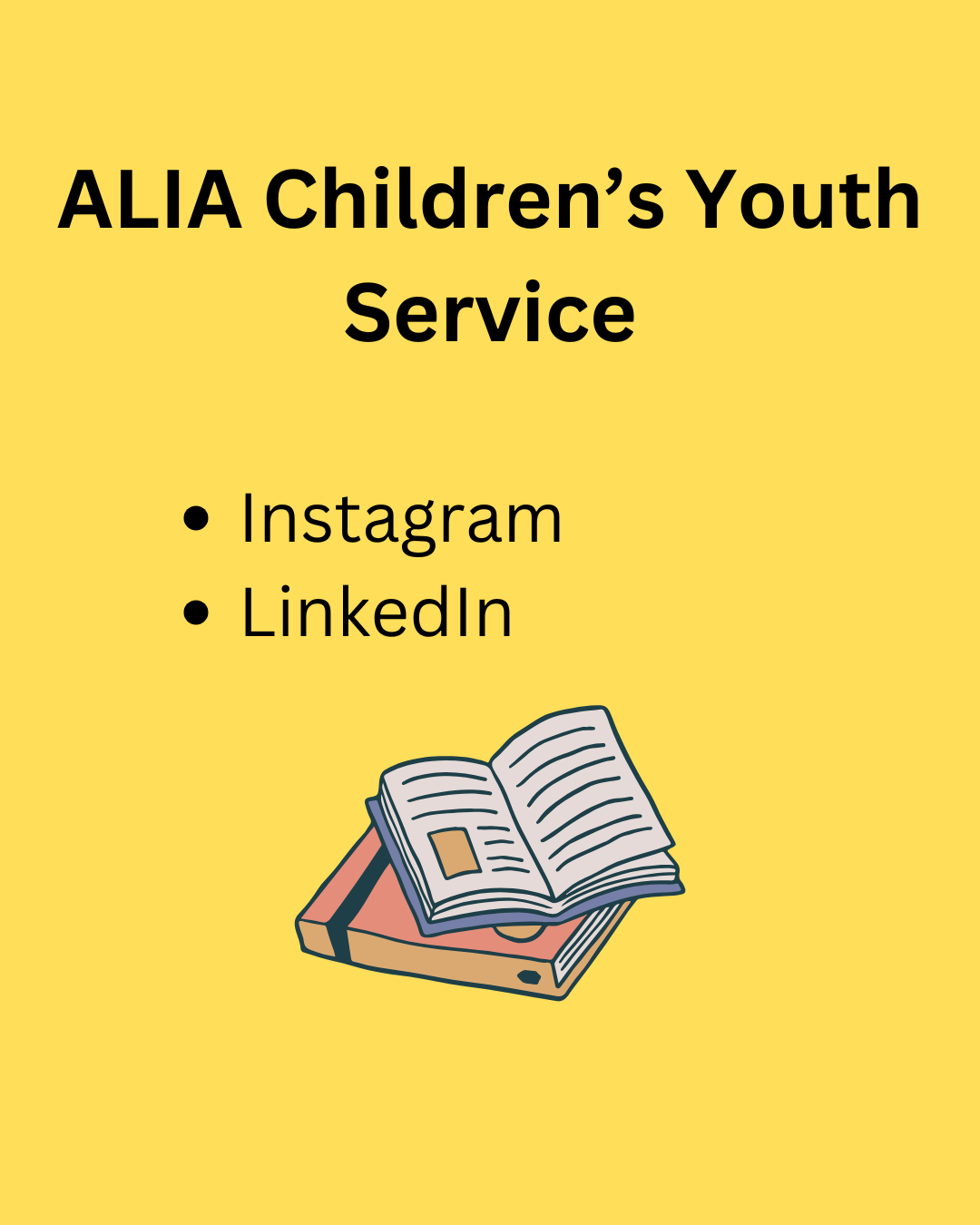
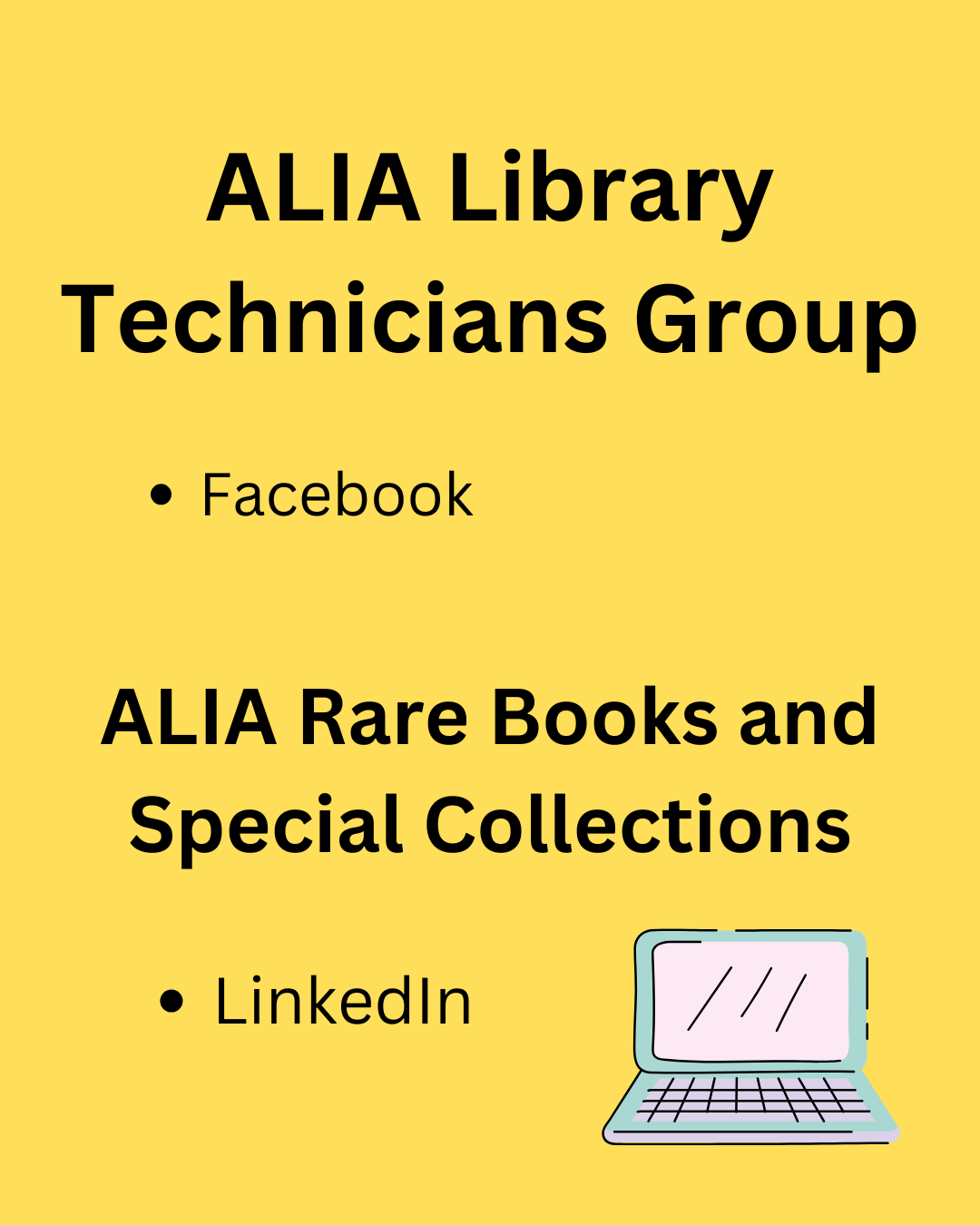
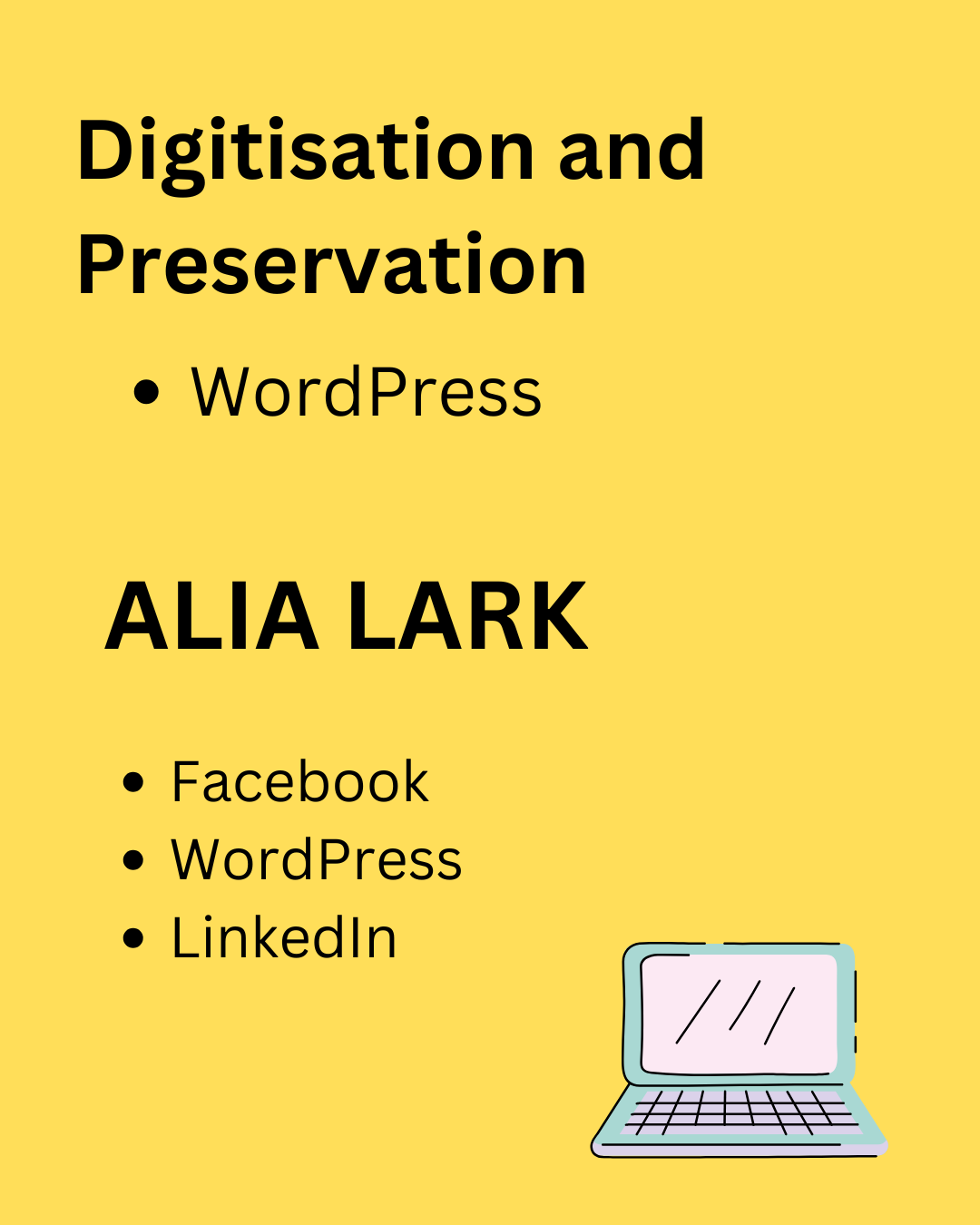
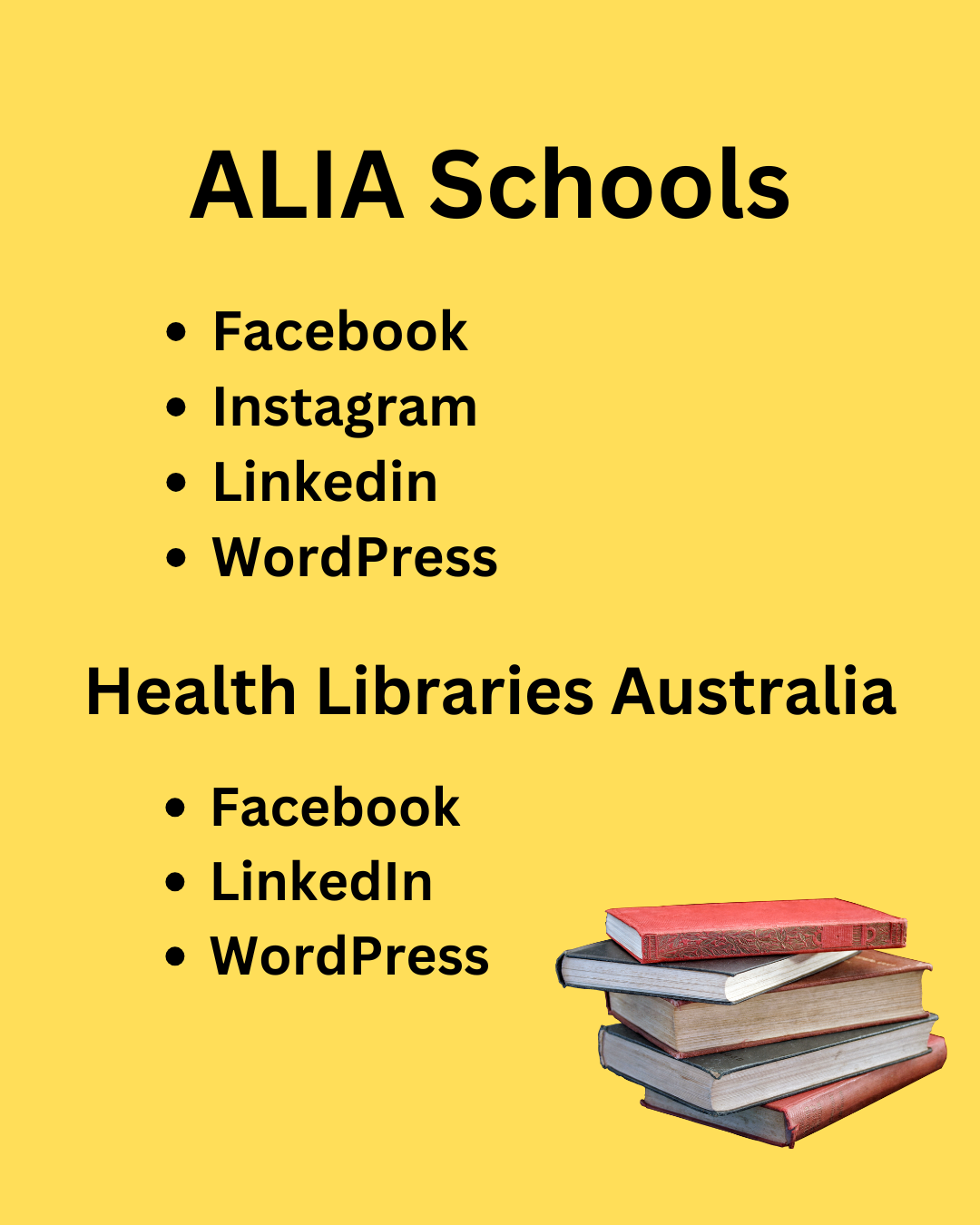
ALIA SNGG Regional Groups Social Media Guide Part 2
